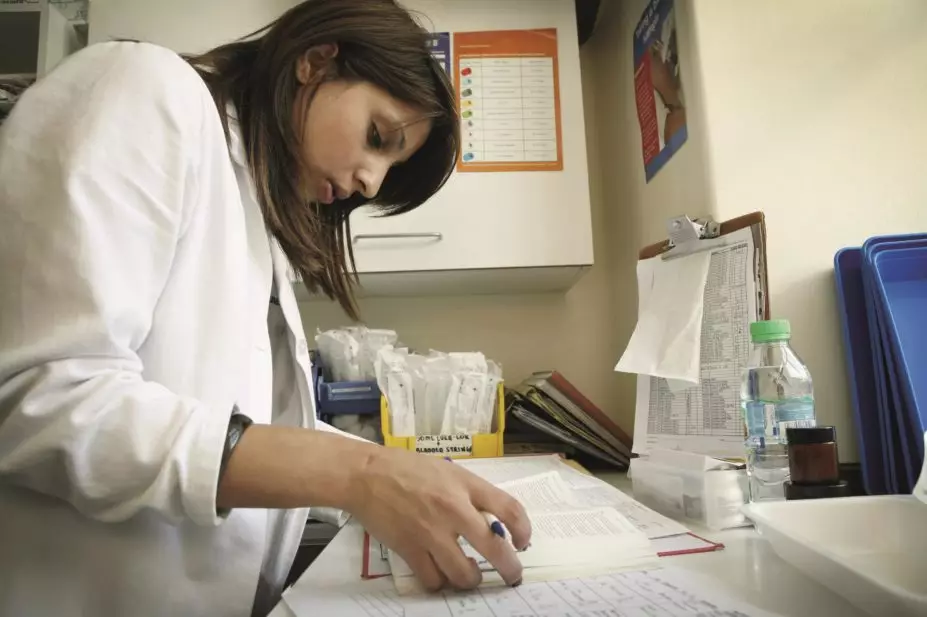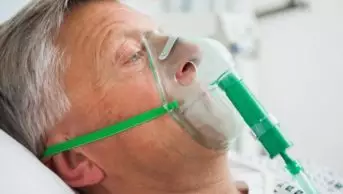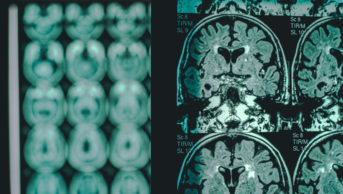
Universal Images Group North America LLC / Alamy Stock Photo
NHS pharmacists are reluctant to carry out research because of a lack of confidence, time and support as well as a belief that it is not part of their core work, according to the results of a study published in BMJ Open
[1]
on 30 December 2015.
“Health services research for most pharmacists… was viewed as an exceptional activity rather than a core role,” say the researchers, led by Richard Lowrie of the NHS Greater Glasgow and Clyde pharmacy and prescribing support unit.
“In order to develop and test sustainable, new models of pharmacists working in relation to patient benefit and answer calls for innovation, pharmacists may need to let go of their research-related fears and modify what may be regarded as a restrictive professional NHS environment,” they add.
The research was based on interviews with 54 NHS pharmacists employed by the NHS Greater Glasgow and Clyde health board. Most interviewees had been qualified for at least 10 years; 68% were female, 36% worked in hospital, 39% in primary care and 5% in public health. Some 37% were currently involved in some kind of research, while 9% had never taken part in research.
Failure to prioritise research, with clinical services taking precedence, was often cited as the greatest barrier to conducting research. Those who did take part in research were more likely to do so if it culminated in a post-graduate qualification, the interviews reveal.
Although pharmacists working in hospitals and primary care acknowledge that pharmacy research is important for both their professional status and in contributing to patient care, many felt that they did not have the skills or knowledge to participate. They also found it difficult to distinguish between audit and research.
Management support was viewed as necessary for pharmacists to become more active in research but many interviewees pointed out that discussions around research did not take place with managers, reinforcing a belief that there were cultural barriers to participating in research.
The researchers say their findings reflect the conclusions of a similar study published over 25 years ago “suggesting that pharmacy and pharmacists’ reasons for low research uptake are endemic and persistent”. They point out that the career structure of pharmacy in the NHS has not changed significantly over the past two decades even though the need for “more robust evidence to inform pharmacy practice has increased because of the prevailing fiscal climate”.
“A revision to NHS pharmacists’ career structure may be needed if employees are to establish new ways of working through robust evidence of effectiveness and cost-effectiveness,” the researchers conclude.
Rachel Joynes, head of research and evaluation at the Royal Pharmaceutical Society (RPS), says there is a lack of knowledge among pharmacists about the support available to conduct research and a lack of knowledge about how to build research into their careers and lifestyle. “Over the past 5 to 10 years, certain allied health professions – such as physiotherapists – as well as nurses have had structured career paths in terms of research,” she explains. “By the time they reach [senior positions] they have very defined competencies that have to be achieved via research. That isn’t the case in pharmacy, although a couple of hospitals are trialling that as part of their consultant pharmacy posts.”
Joynes points out that support is offered to pharmacists through funding from Pharmacy Research UK and the RPS Research Ready programme, which helps pharmacists to engage with research. The RPS also promotes research through the RPS Faculty, which did not exist when the Glasgow research was carried out between 2013 and 2014 and which Joynes says “fills a lot of the gaps identified”. The National Institute for Health Research’s clinical research networks are also valuable in encouraging health professionals to become active in research, she adds.
“We want to get pharmacists engaged in research,” Joynes concludes. “But they can’t engage if there isn’t any research going on.”
References
[1] Lowrie R, Morrison G, Lees R et al. Research is ‘a step into the unknown’: an exploration of pharmacists’ perceptions of factors impacting on research participation in the NHS. BMJ Open 2015;5:e009180. doi:10.1136/bmjopen-2015- 009180


